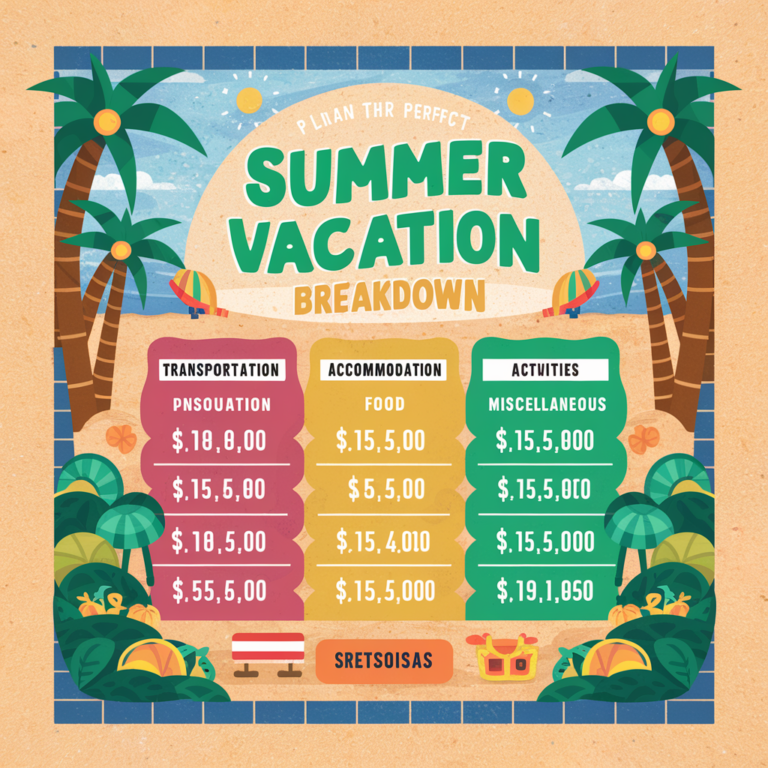Many of us anticipate retirement as a significant life milestone. We may now finally unwind, unwind, and enjoy the results of our labor. However, having a well-thought-out retirement plan is essential to enjoy your golden years fully. In this post, we’ll discuss the significance of retirement planning and give you a thorough how-to manual for securing your future.
Importance of Retirement Planning
Retirement planning is about creating a strategy for your desired retirement lifestyle, not merely a financial exercise. No matter what your aspirations are—whether it’s seeing the world, engaging in hobbies, or spending time with loved ones—effective planning is the secret to making them come true.
Economic Stability
Financial security is one of the main motivations for retirement planning. You can fight to make ends meet throughout your retirement if you need a sound financial strategy. Benefits from Social Security should be more frequently sufficient to sustain your preferred standard of living. To guarantee you have a healthy financial cushion when you retire, saving and investing is crucial.
Medical Bills
The consideration of healthcare expenses is a crucial component of retirement planning. Our healthcare demands tend to increase as we get older, and medical costs can put a severe financial strain on us. Unforeseen health problems won’t wipe out your retirement funds if you have a strategy that includes medical emergency savings and health insurance coverage.
Inflation
Retirement funds are silent victims of inflation. The purchasing power of your money gradually decreases as the cost of living increases over time. A well-designed retirement plan considers inflation and includes measures to ensure your income keeps up with inflation, enabling you to continue your lifestyle comfortably.
Keeping Loved Ones from Being Burdened
Planning for retirement effectively also shields your loved ones from having to take care of your financial needs as you age. A solid retirement plan decreases your chance of being financially dependent on your children or other family members, allowing them to concentrate on their financial objectives and commitments.
What Makes a Good Retirement Plan?
Let’s examine the essential elements of a sound retirement plan now that we’ve established the significance of retirement planning.
Establish Precise Retirement Goals
Identifying your retirement goals is the first step in retirement planning. How would you wish to spend your retirement? Do you want to live a quiet, relaxed lifestyle, go on many trips, or pick a new hobby? You can figure out how much money you’ll need and what kind of investments are best for achieving your goals by setting specific goals.
Estimate Your Needs for Retirement
Determine how much money you’ll need to sustain your retirement lifestyle once you have a firm idea. This entails calculating your projected living expenditures, accounting for inflation, and considering supplementary expenses like long-term care and medical expenses.
Establish a Budget
A critical component of retirement planning is budget creation. You can use it to keep track of your present spending, find places to cut costs and allocate money for retirement savings. You can create a more substantial retirement nest fund by adhering to a budget.
Create a Diverse Portfolio of Investments
An essential aspect of retirement planning is investing. Saving money is important, but your investment returns can significantly impact your retirement savings. You can reduce risk and increase long-term profits by distributing your investment holdings among various asset classes, including stocks, bonds, and real estate.
Make the Most of Retirement Savings
Utilize tax-favored retirement funds, such as 401(k), IRAs, and Roth IRAs. These accounts can increase your retirement savings while providing tax advantages. Increase your contributions to these accounts, remarkably, if your company matches your 401(k) payments.
Take Long-Term Care and Healthcare Into Account
Remember to budget for anticipated long-term care costs as well as healthcare bills. To cover medical expenses in retirement, look into Medicare and supplemental insurance alternatives. Consider setting up a health savings account (HSA). Long-term care insurance can protect your finances if you need more intensive care as you age.
Reduce Debt
Before retiring, you can use more of your income for other needs and investments by reducing or eliminating debt. Credit card debt and other high-interest loans should be paid off first.
Make Social Security plans.
Know how Social Security benefits operate and when to apply for them. When choosing when to start receiving Social Security benefits, remember your financial status and ambitions, as delaying your benefits may result in higher monthly payments.
Regularly Examine and Modify Your Plan
Because life is erratic, your financial status could evolve. Review and modify your retirement plan to align with your goals and situation. This could entail rearranging your investment portfolio, raising your savings rate, or implementing other tactical adjustments.
Consult a Professional for Advice
A financial advisor or retirement planner can offer specialized advice based on your financial status and goals. They can assist you in navigating intricate economic issues and making informed decisions.
Common Errors in Retirement Planning to Avoid
Knowing what to include in your retirement plan is essential, but it’s just as important to be aware of typical pitfalls to avoid:
Ignoring deadlines
Delaying retirement preparation is among the most frequent errors. Compound interest will have more time to build your money the earlier you start investing and saving for retirement. Don’t wait; begin retirement planning as soon as you can.
Failure to account for costs
Having financial issues later on can result from inaccurately estimating your retirement needs. Be meticulous in your estimates, considering inflation, possible healthcare expenditures, and unforeseen charges.
Ignoring Tax Consequences
Taxes may significantly impact your retirement income. Consider the tax effects of your investment decisions and the timing of retirement account withdrawals.
Lacking Attention to Asset Allocation
Risky investments include those in a poorly diversified portfolio. During market downturns, excessive reliance on one asset type, such as equities, can result in significant losses. To lower risk, diversify your investment portfolio.
Ignoring a reserve account
An emergency fund is essential at any stage of life, including retirement. A safety net can help you from depleting your retirement savings too quickly because unanticipated bills could arise.
Conclusion
Financial security and happiness depend on retirement preparation. Setting realistic goals, evaluating retirement needs, budgeting, and sensible investment selections can establish a solid basis for your retirement years. Avoiding common mistakes and seeking professional help will enhance your retirement planning. Retirement preparation is never too early or late, so start now to protect your golden years. Your future self will thank you.






